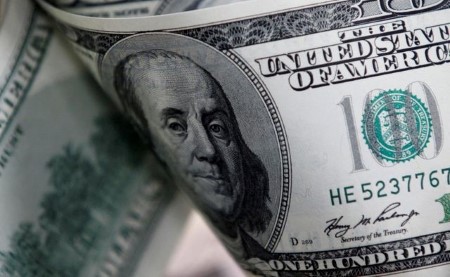




Policy Rate Updates: BSP outlook — cloudy with a chance of rate cut
 DOWNLOAD
DOWNLOAD

January Economic Update: Growth slows, prices rise
 DOWNLOAD
DOWNLOAD

Inflation Update: Up, up, and away?
 DOWNLOAD
DOWNLOAD


Yields drop on safety bid as Ukraine strikes Russia

NEW YORK – US Treasury yields fell on Tuesday as investors bought safe-haven US government bonds on concerns about escalating geopolitical tensions after Ukraine sent American missiles into Russian territory for the first time.
Ukraine used US ATACMS missiles to strike Russia, Moscow said, in an attack regarded by Russia as a major escalation on the war’s 1,000th day.
“It seems to be all flight to quality,” said Tom di Galoma, head of fixed income trading at Curvature Securities. “There is a ‘risk off’ bid with the Ukraine, Russia tension.”
Benchmark 10-year note yields were last down 3.6 basis points at 4.379%. Two-year yields fell 1.4 basis points to 4.27%.
The yield curve between two-year and 10-year notes flattened by around 2 basis points to 11 basis points.
Yields have risen in the past two months on stronger than previously anticipated US economic data. Expectations that Republicans will enact more growth-friendly and inflationary policies after winning control of Congress and the presidency added to the move, with many traders correctly predicting a ‘red wave’ before the election.
Donald Trump is expected to clamp down on illegal immigration and enact new tariffs after winning the Nov. 5 presidential election, but there remains a lot of uncertainty over how these policies may be implemented.
Traders are also focused on Trump’s pick for Treasury secretary for further clues on likely policies.
Still-strong economic data has also raised doubts on whether the Federal Reserve could pause its interest-rate cutting cycle, following 75 basis points of reductions since September.
Fed Chair Jerome Powell said on Thursday that ongoing economic growth, a solid job market, and inflation that remains above its 2% target mean the Fed does not need to rush to lower interest rates.
Traders are pricing in 59% odds that the US central bank will cut rates by 25 basis points at its Dec. 17-18 meeting, and a 41% chance of a pause, according to the CME Group’s FedWatch Tool.
It remains uncertain how far interest rates can fall, Kansas City Fed President Jeffrey Schmid said on Tuesday, adding that US monetary policy remains restrictive but not overly so.
Data on Tuesday showed that US single-family homebuilding tumbled in October as Hurricanes Helene and Milton depressed activity in the South.
The Treasury Department will sell USD 16 billion in 20-year bonds on Wednesday and USD 17 billion in 10-year Treasury Inflation Protected Securities on Thursday.
(Reporting By Karen Brettell; Editing by Andrea Ricci and Jonathan Oatis)
This article originally appeared on reuters.com





 By Reuters
By Reuters